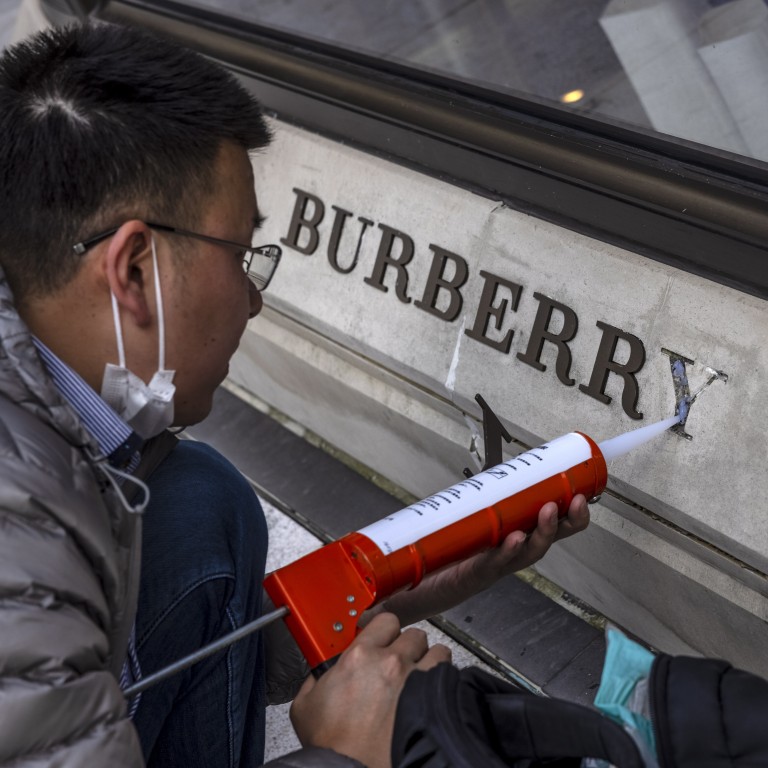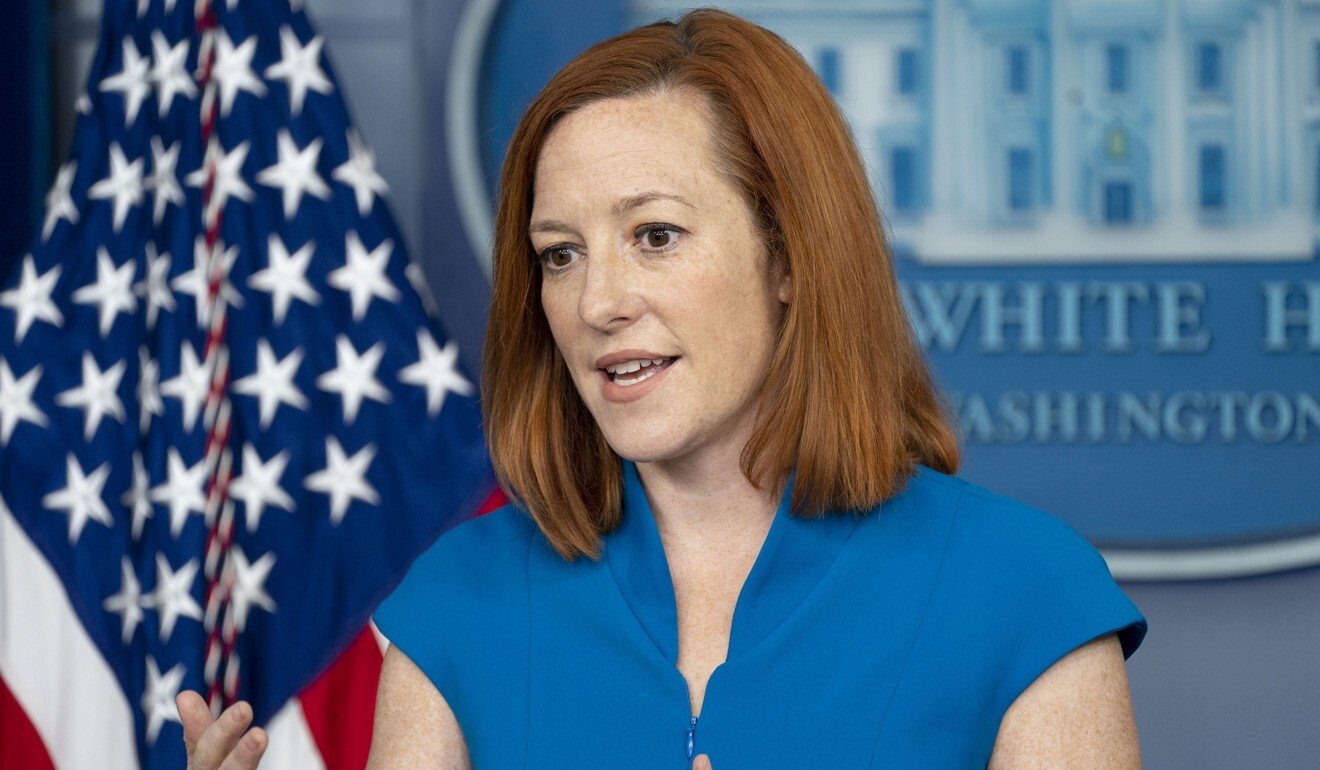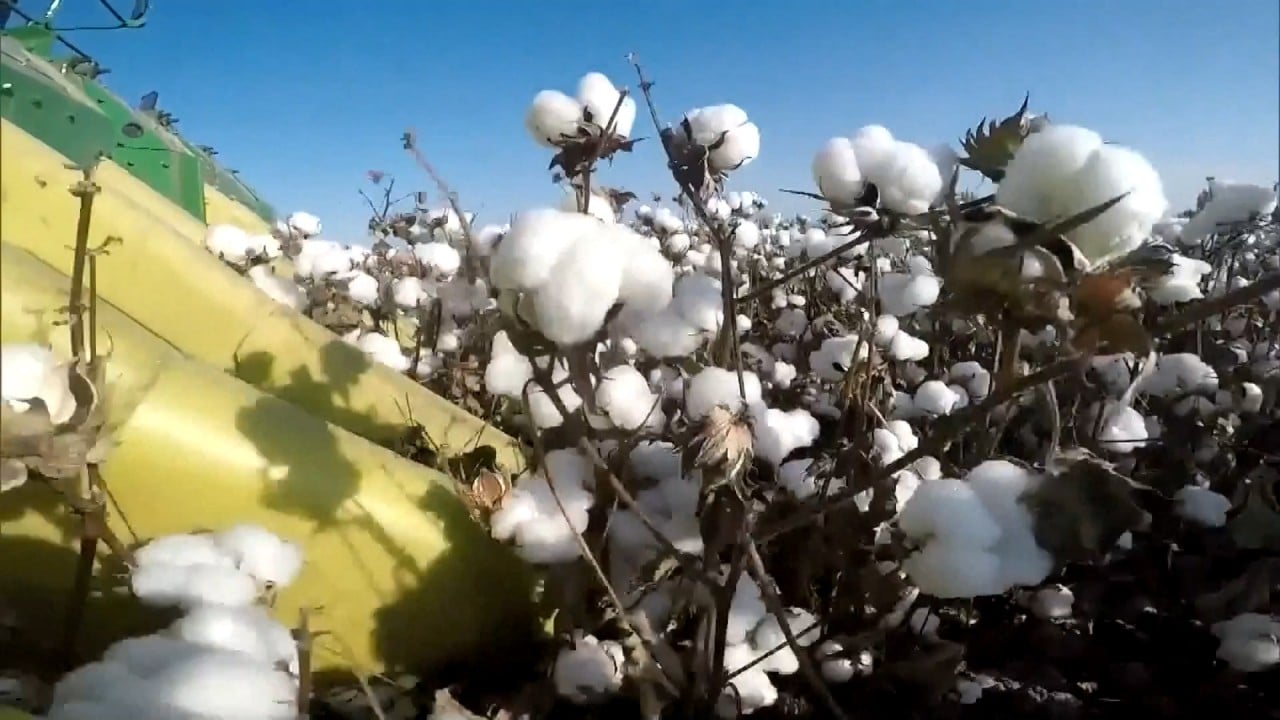
US decries Chinese ‘state-led’ social media campaign against companies cutting Xinjiang ties
- Biden administration appears keen to stiffen the resolve of companies that say they will stop working with Xinjiang suppliers because of forced-labour charges
- Chinese media has called for boycotts of Swedish retailer H&M, sports apparel powerhouses Nike and Adidas; New Balance; Burberry and other brands
The Biden administration criticised on Friday what it called a Chinese “state-led” social media campaign against US companies and other foreign businesses that have pledged not to use cotton and other components involving Uygur workers in Xinjiang.
With concern mounting globally over alleged forced labour and other human rights abuses in China’s far western region of Xinjiang, the European Union on Monday announced sanctions against four Xinjiang officials and one entity; the US, Britain and Canada quickly followed in what seemed to be a coordinated move.
Beijing quickly countered with its own sanctions against 10 EU lawmakers, scholars, human rights activists and scholars and four organizations for “maliciously spreading lies and false information”. Beijing followed up on Friday with sanctions aimed at Britain involving nine individuals and four entities.
Chinese media has called for Chinese boycotts of Swedish multinational retailer H&M, sports apparel powerhouses Nike and Adidas; New Balance; Burberry and other members of the Better Cotton Initiative (BCI) that have voiced concerns or pledged not to use supply chain components produced in Xinjiang.

02:38
Global brands face backlash in China for rejecting Xinjiang cotton
On Friday, the Biden administration appeared keen to stiffen corporate resolve. “We commend and stand with companies that adhere to US laws and ensure that products we are consuming are not made with forced labour,” State Department spokeswoman Jalina Porter said.
Porter added that the Biden administration is keen to ensure that US companies adhere to US law and worker concerns and “don’t in any way support forced labour”.
In a separate briefing Friday, White House Press Secretary Jen Psaki called out Beijing’s strategic use of its state-led economy. “The international community in our view should oppose China’s weaponising of private companies’ dependence on its markets to stifle free expression and inhibit ethical business practices,” she said.
“We certainly have been watching this issue closely, as you well know, and we’ve taken our own strong actions in order to prevent China from profiting off of its horrific human rights abuses in Xinjiang, and to stop imports of products made with forced labour in China,” Psaki added.
Human rights groups estimate that some 1 million Uygurs have been forcibly detained in camps that Beijing has characterised as employment centres.

Earlier on Friday in Beijing, Chinese Foreign Ministry spokeswoman Hua Chunying, citing a 2018 video, accused “ideologues” in the US and among its allies of rumour-mongering and smearing China over “unfounded” Xinjiang forced labour allegations.
“The so-called Uygur issue in Xinjiang is just a strategic conspiracy, an attempt to disrupt China from within and contain China,” she said.
China has often applied its massive market and economic leverage against overseas critics – using boycotts, media coverage, even regulating the flow of its overseas tourist traffic.
China state media claim Xinjiang conspiracy hidden in video of retired US colonel
Last week, during heated meetings with top Chinese diplomat Yang Jiechi in Anchorage, Alaska, Secretary of State Antony Blinken assailed Beijing’s use of economic coercion against US partners like Australia.
The Biden administration has made cooperation with other frustrated allies a cornerstone of its developing China policy. This approach is in keeping with a bid to check the perceived excesses of China, its declared “strategic competitor”, but also with its effort to distinguish itself from the “America First” policies of the former administration of Donald Trump.

01:08
Xinjiang, China’s top cotton producer
Growing concern over China’s economic and security policies have been one of the few areas drawing bipartisan support in politically divided Washington. On Friday, Senator Rick Scott, a Florida Republican and China hawk, urged American consumers to boycott all imports from China.
“Reshoring supply chains back to the US helps create American jobs and build up America’s manufacturing sector,” he added in his statement. “We cannot relent in our efforts to send a clear message to General Secretary Xi”, a reference to Chinese President Xi Jinping in his role atop the Chinese Communist Party.
With China’s clout growing in the United Nations, the Biden administration has signalled an intention to contest multilateral positions that it believes Beijing uses to weaken global norms, whether concerning intellectual property protections or human rights. Critics counter that major world powers have a long history of remaking institutions and norms in their interest.
China sanctions British MPs, lawyers, businesses for Xinjiang ‘disinformation’
On Friday, Erica Barks-Ruggles of the State Department’s bureau of international organisation affairs, said that one priority would be to win a seat on the UN’s Human Rights Council later this year. Under Trump, the US withdrew from the council in 2018.
“We are not going to pull back and cede terrain, to have others rewrite the rules and norms and values that animate those institutions,” she added.
“And we’ll stand up for our democratic values and for human rights when they’re being abused, whether that’s in Xinjiang, or whether it’s in Hong Kong. And we will continue to do that, on or off the council.”
Additional reporting by Jacob Fromer and Owen Churchill

